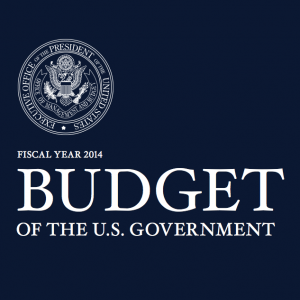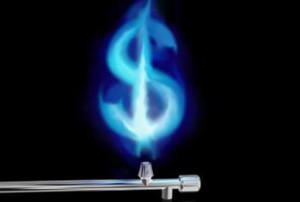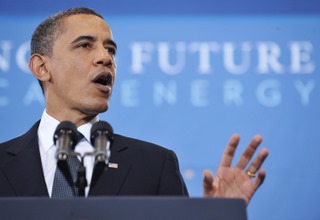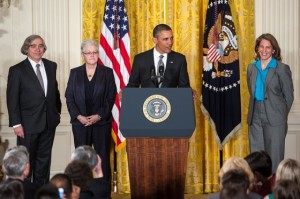587 item(s) were returned.
President Obama’s fiscal year 2014 budget, released April 10th, contains many of the energy initiatives previously outlined in his Energy Blueprint. Programs such as the Race to the Top energy efficiency challenge and the Energy Security Trust are included, along with slight adjustments to the enacted budgets of the primary agencies that shape energy policy – the Department of Energy, the Department of the Interior, and the Environmental Protection Agency. Specifically, the DOE budget would see total funding growth of 8%, with funding for energy efficiency and renewable energy increasing 40%. The DOI budget would increase 4%, and include an… [more]
View InsightA battle is heating up in California regarding the State’s net metering policy as the California Public Utilities Commission is reviewing the policy’s costs and benefits. Net metering is an incentive that allows consumers who produce their own electricity, from rooftop solar panels for example, to sell excess back to the grid (often) at full retail price. Opponents of net metering contend that the volumetric retail rate includes fixed costs that are essential to the long-term stability of our utility infrastructure. They claim that net metering customers get the benefit of using the grid, but pay less to do so… [more]
View InsightThe increased focus on oil and gas exploration in the Arctic has identified numerous issues. Oil and gas exploration is a significant challenge for policy makers at all levels of government. In the recent Review of Shell’s 2012 Alaska Offshore Oil and Gas Exploration Program, the Department of Interior identified seven critical principles for safe and responsible offshore drilling, including improved management of contractors and integrated government oversight. It has been noted that with the substantial oil and gas resources believed to exist in the Arctic, geopolitical considerations will greatly impact domestic policy. A Center for Climate and Energy Solutions… [more]
View InsightProfessor of Public Policy
Georgia Institute of Technology
Thanks to breakthroughs in seismic imaging, horizontal drilling and hydraulic fracturing, the US in 2012 reduced its reliance on much dirtier coal by shifting to gas-fired power plants. This trend is expected to continue, spurred by low gas prices and increased regulation on coal. The move to shale gas is being heralded as a key to economic prosperity and a clean energy future. But there are other options for displacing baseload electricity from retired coal plants, the principals being nuclear, renewables and energy efficiency. Will the gas bonanza enable or postpone the transition to these cleaner options? While natural gas… [more]
View InsightA recent report by analysts at Ernst and Young predicts that the global LNG market will shift away from its current pricing model, tied to international crude oil prices, to more spot or hub-based pricing. The report, “Global LNG: Will new supply and new demand mean new pricing?” explains that strict oil indexation will become less tenable because “From the global supply side, oil is becoming somewhat scarcer while gas is more plentiful,” thus creating the “inherent conflict of persistently-high oil prices and a growing surplus of natural gas.” More specifically, the report concludes that oil indexation of gas contracts… [more]
View InsightAccording to The President’s energy blueprint, the Obama Administration is calling on Congress to establish a $2 billion Energy Security Trust to invest in breakthrough research into technologies, such as advanced electric vehicles, homegrown biofuels, fuel cells, and domestically produced natural gas. The funds would come from oil and gas royalty revenues generated from development in Federal waters off the Outer Continental Shelf (OCS). Other highlights of the blueprint include: Making the renewable energy Production Tax Credit permanent and refundable; A new $25 million prize for the first, natural gas combined cycle power plant to integrate carbon capture and storage;… [more]
View InsightPresident Obama has announced his choices to replace the outgoing energy and environment Cabinet members: Ernest Moniz, Director of the MIT Energy Initiative, has been nominated as Secretary of Energy; Gina McCarthy as head of the EPA, where she is currently the assistant administrator for air and radiation; and Sally Jewell, CEO of REI, for Interior Secretary. If confirmed, how would you expect these new officials to approach major policy issues from domestic oil and gas exploration to hydro-fracturing to climate change to nuclear energy, and more, both absolutely and in comparison to their predecessors? What would you recommend for… [more]
View InsightSequestration’s $85 billion automatic spending cuts began going into effect on Friday, but the timeline and full extent of the cut’s impacts are still somewhat vague. So what’s at stake for energy and environmental programs and the energy industry at large? Here’s what major department leaders have said about the likely effects of sequestration: In a letter to the Appropriations Committee, outgoing energy secretary Steven Chu highlighted a concern with the structure of the $2.4 billion in DOE budget cuts, explaining that “The effects of sequestration are particularly damaging because, by law, they apply equally to each program, project, and… [more]
View InsightPresident
Micro-Utilities, Inc.
Are the United States and other countries facing a looming threat of another oil-related recession? Prior to the economic crash in 2008 the price of oil steadily increased. As the world margin between supply and world demand approached zero, oil prices rose. When this margin went to zero, oil prices hit $147/barrel and the recession began. Unlike many politically initiated oil recessions of the past, a major recession trigger in 2008 was a “physically” initiated event — the disappearance of the margin between world supply and demand. Physically initiated oil recessions do not have the post-peak, national, debt-free “stimulus package”… [more]
View InsightA bill, recently introduced by Illinois State Representatives John Bradley and David Reis, to regulate hydraulic fracturing in the state is attracting support from both industry and environmental groups. The bill, House Bill 2615, introduced on February 21st, 2013, would impose new requirements on the oil and gas industry, such as: Public disclosure of all fracking chemicals before fracking begins Presumed liability of the oil and gas drillers for any environmental contamination near fracking sites, until proven otherwise Restrictions on venting and flaring of natural gas The bill’s supporters believe that it outlines an effective compromise that could open up… [more]
View Insight








